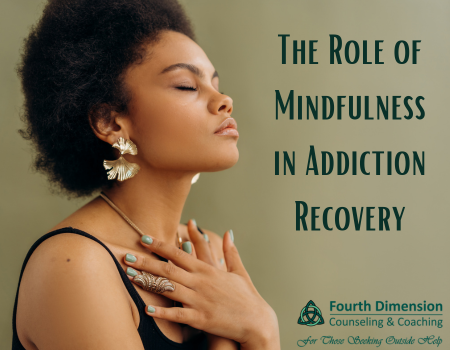Addiction is a complex and deeply ingrained condition that affects millions of people worldwide. Addiction recovery requires more than just willpower—it demands a holistic approach that addresses the mind, body, and emotions. One powerful tool that has gained recognition in addiction recovery is mindfulness. Rooted in ancient meditative traditions, mindfulness offers individuals struggling with addiction a way to regain control over their thoughts, emotions, and behaviors.
 Understanding Mindfulness
Understanding Mindfulness
Mindfulness is the practice of being present in the moment, fully aware of one’s thoughts, feelings, bodily sensations, and surroundings without judgment. It involves acceptance of reality as it is, rather than resisting or avoiding difficult emotions and experiences. By cultivating mindfulness, individuals learn to observe their cravings and triggers with a sense of detachment, reducing their power over them.
How Mindfulness Supports Addiction Recovery
Increases Self-Awareness: Mindfulness helps individuals recognize patterns in their thoughts and behaviors, making them more aware of what triggers their cravings. By identifying these patterns, they can take proactive steps to avoid relapse.
Reduces Stress and Anxiety: Many people turn to substance use as a way to cope with stress. Mindfulness-based practices, such as deep breathing and meditation, activate the parasympathetic nervous system, helping to calm the mind and reduce stress levels.
Enhances Emotional Regulation: Addiction often leads to heightened emotional reactivity. Mindfulness teaches individuals to acknowledge their emotions without acting impulsively. By observing their emotions nonjudgmentally, they develop healthier coping mechanisms.
Improves Impulse Control: One of the biggest challenges in addiction recovery is overcoming impulsive urges. Mindfulness allows individuals to pause before acting on cravings, giving them time to make a more rational decision.
Promotes Acceptance and Self-Compassion: Guilt and shame are common in addiction recovery. Mindfulness fosters self-compassion, helping individuals treat themselves with kindness rather than self-criticism. Accepting past mistakes without dwelling on them empowers individuals to move forward in their recovery journey.
Mindfulness Practices for Addiction Recovery
Several mindfulness techniques can be incorporated into addiction recovery programs, including:
- Body Scan Meditation: Bringing attention to different parts of the body to release tension and enhance awareness.
- Mindful Breathing: Paying attention to the breath as a way to stay grounded in the present moment.
- Mindful Eating: Paying close attention to the experience of eating, including taste, texture, and hunger cues.
- Loving-Kindness Meditation: I’ve reworded the sentence to “Developing a sense of kindness and understanding toward oneself and others.” Let me know if you’d like any further adjustments!
- Mindful Walking: Engaging in slow, intentional walking while being aware of each step.
The Scientific Backing of Mindfulness in Recovery
Research supports the effectiveness of mindfulness in addiction recovery. Studies have shown that mindfulness-based interventions (MBIs) can significantly reduce substance use, decrease stress, and improve overall well-being. Programs such as Mindfulness-Based Relapse Prevention (MBRP) integrate mindfulness practices with traditional recovery strategies, offering a comprehensive approach to overcoming addiction.
Mindfulness is not a quick fix, but it is a powerful tool that, when practiced consistently, can transform the recovery journey. By fostering self-awareness, emotional resilience, and impulse control, mindfulness helps individuals regain a sense of control over their lives. Incorporating mindfulness into addiction recovery programs provides a sustainable path toward healing, self-discovery, and long-term sobriety. As research continues to validate its benefits, mindfulness remains a valuable ally in the fight against addiction.
